Every year, two of the biggest events in the tech world ignite excitement, innovation, and a wave of new possibilities for developers, businesses, and tech enthusiasts: Microsoft Build and Google I/O. In 2025, both companies delivered massive updates — packed with cutting-edge tools, futuristic AI integrations, and developer-centric solutions.
But the big question remains: Which one offered the most valuable tools and features for creators and coders in 2025?
In this deep dive, we compare the highlights from both events to help you understand which technology giant stole the spotlight—and how their new offerings could impact the future of development, productivity, and artificial intelligence.
Event Overview
Microsoft Build 2025: A Developer-Centric AI Playground
Held in Seattle and streamed globally, Microsoft Build 2025 focused heavily on empowering developers through AI-powered productivity, Copilot integrations, and cloud-native development tools. With a strong emphasis on Azure, GitHub, and Microsoft 365, Build put the spotlight on scalable, enterprise-ready solutions.
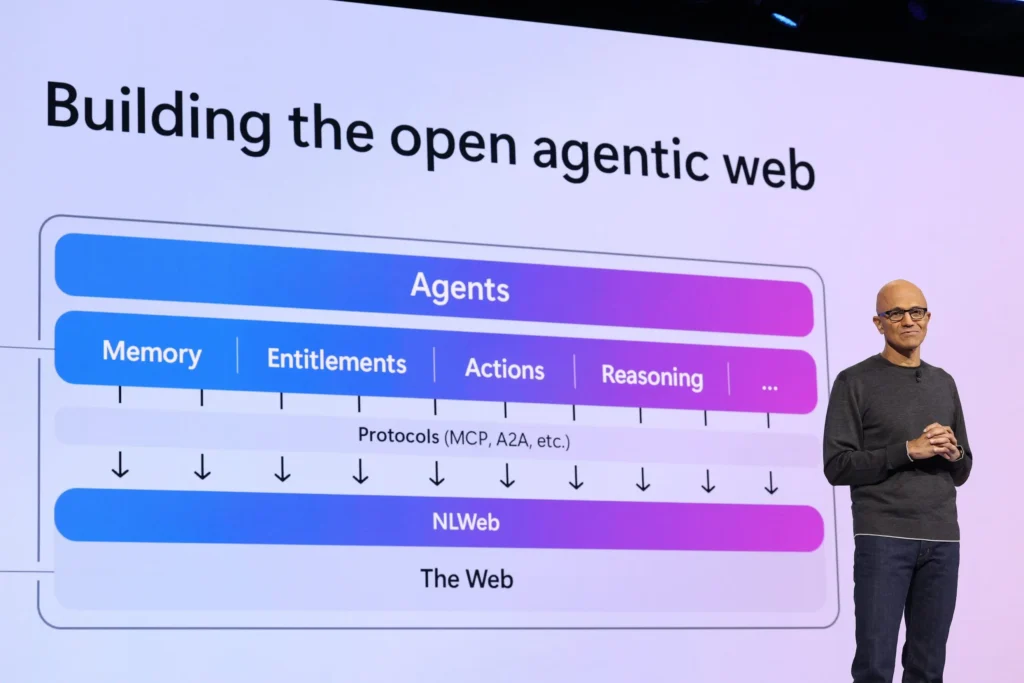
Google I/O 2025: Innovation Meets Everyday Intelligence
Live from Mountain View, California, Google I/O 2025 delivered what it did best—blending software magic with real-world applications. From Gemini AI advancements to Android 15, AI-powered developer tools, and Workspace automation, Google stressed that accessibility and speed are at the heart of its innovation strategy.
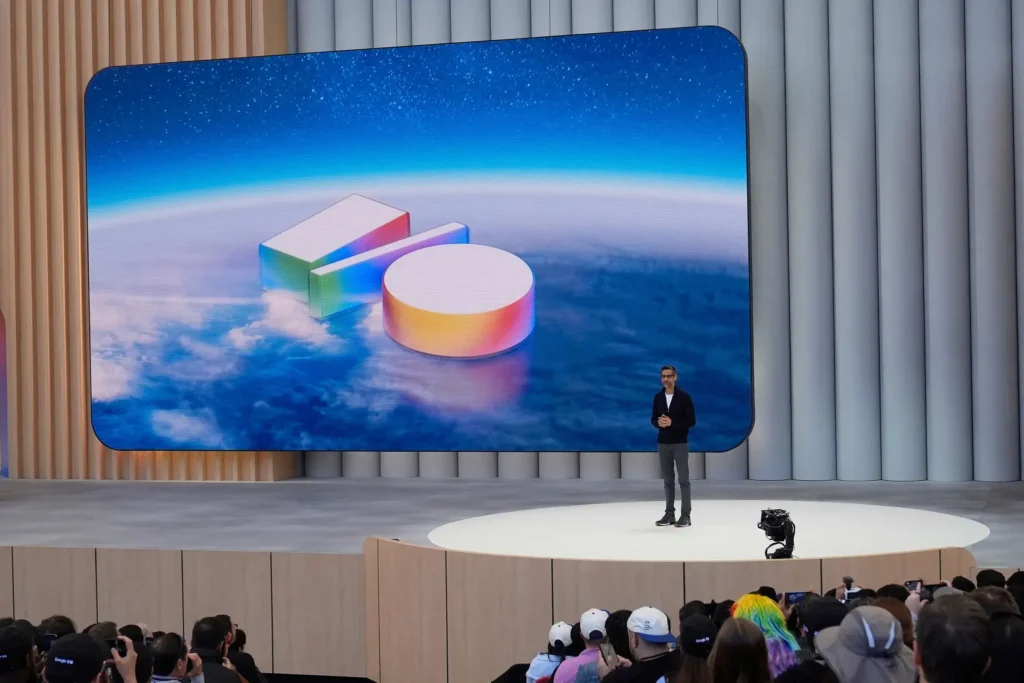
AI Tools: Copilot vs Gemini
Microsoft Copilot Evolution
Microsoft made a significant investment in Copilot in 2025. It’s now embedded across nearly every product — from Visual Studio to Outlook and even Power Platform. Highlights include:
- Copilot Studio: A no-code platform to create your own AI assistants
- GitHub Copilot Workspace: Write, debug, and deploy code with real-time AI suggestions
- Copilot for Azure: Helps manage cloud infrastructure with simple prompts
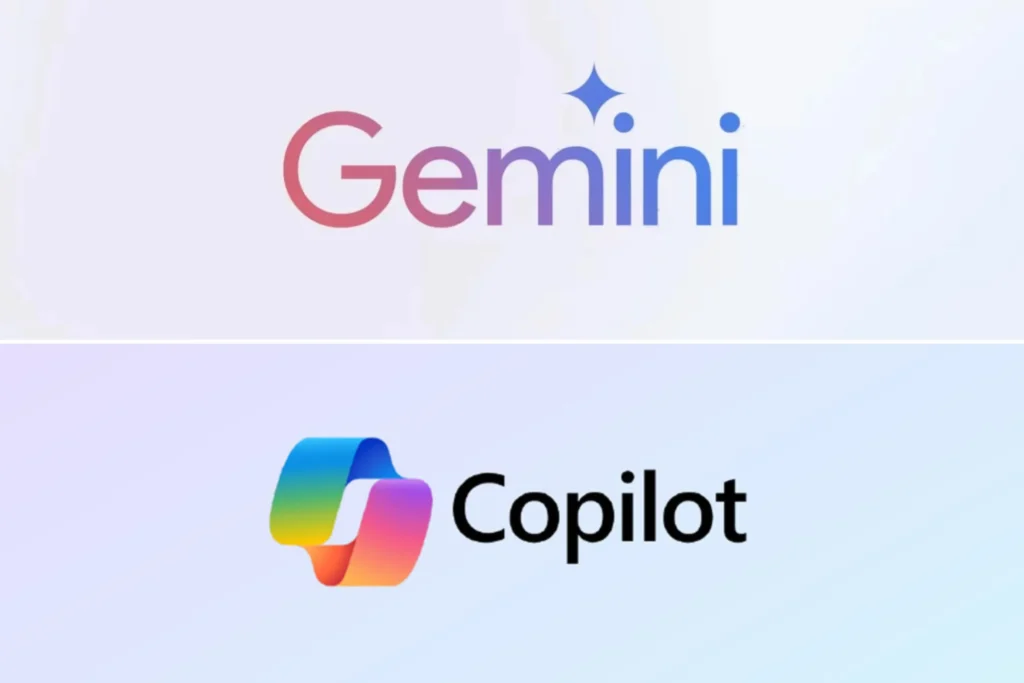
Microsoft’s AI efforts are clearly enterprise-focused, aiming to reduce manual workflows and speed up software delivery cycles.
Google Gemini Expansion
Google expanded Gemini, its family of generative AI models, into nearly all services:
- Gemini Code Assist: Google’s answer to GitHub Copilot, integrated with Android Studio and Chrome DevTools
- Gemini in Workspace: Smarter document summarization, auto-replies, and spreadsheet formula generation
- Project Astra: A real-time multimodal AI assistant that understands voice, text, and image inputs
Where Microsoft leans into productivity, Google aims for contextual intelligence and user-friendly AI across platforms.
Cloud & Infrastructure: Azure vs Google Cloud
Microsoft Azure Updates
Build 2025: introduced
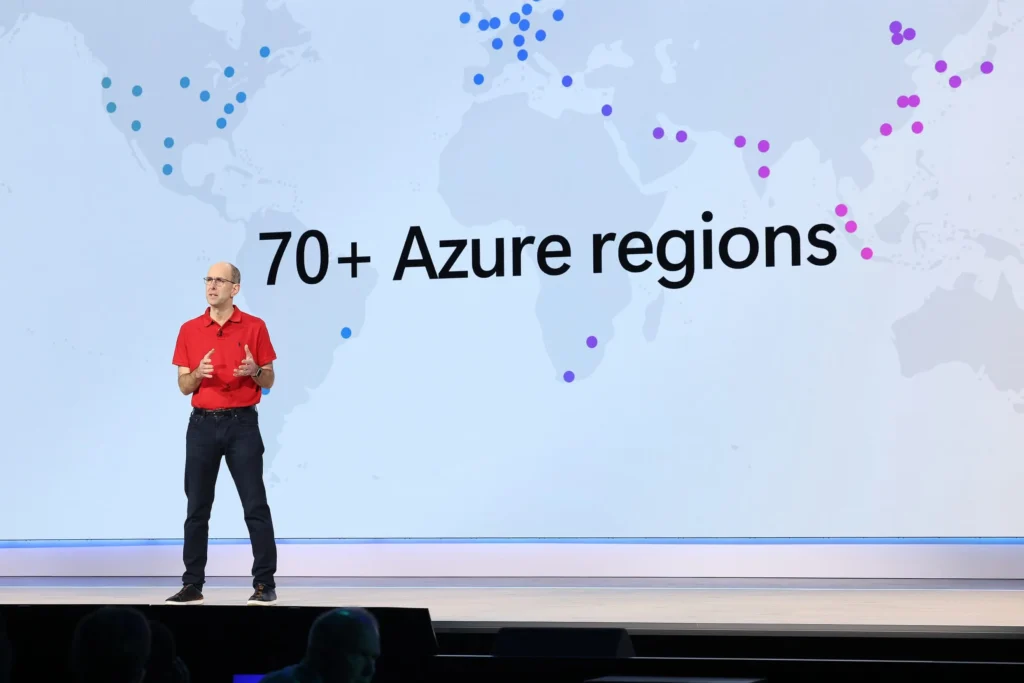
- Azure AI Studio: A playground for building custom generative AI apps
- Hybrid Loop: Seamlessly run AI apps across edge, on-prem, and cloud environments
- Dev Home: A unified dashboard for developers to manage environments, code, and collaboration tools
These enhancements aim to make Microsoft Azure a powerhouse for full-stack, AI-first development.
Google Cloud Announcements
Google fired back with:
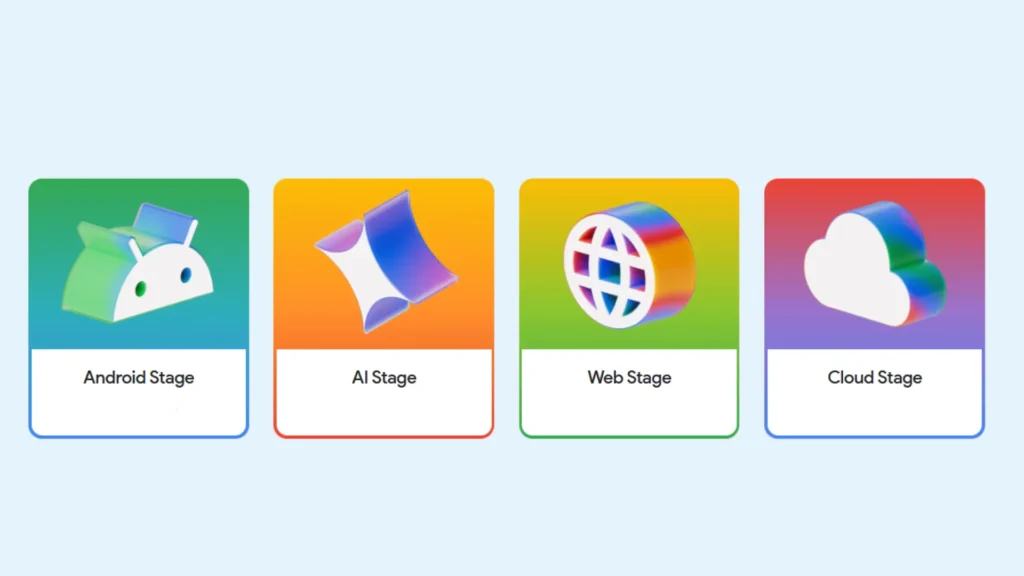
- AI Hypercompute VMs: Optimized for training large AI models at lightning speed
- Duet AI for Google Cloud: Assists with code generation, infrastructure provisioning, and debugging
- Vertex AI Studio Updates: More pre-trained models and user control over fine-tuning
Both clouds are robust, but Google wins on accessibility, while Microsoft leads on enterprise-grade control.
Best of Both Worlds? Smart developers in 2025 will probably use both platforms—using Microsoft’s solid backend and productivity tools while leveraging Google’s forward-thinking design, mobile development, and AI UX innovation.
Mobile & App Development
Android 15 + Flutter 4 (Google)
Google introduced Android 15, packed with features like
- Privacy sandbox improvements
- Contextual app suggestions
- Enhanced foldable and wearable support
Flutter 4 brought better rendering performance, AI-driven UI suggestions, and seamless web-to-app transitions.
Windows Dev Kit + MAUI Enhancements (Microsoft)
Microsoft highlighted .NET MAUI updates for building cross-platform apps more efficiently and the Windows Dev Kit 2025 — a compact device for AI-first development.
While Android still dominates mobile, Microsoft’s cross-platform app push is gaining ground, especially in enterprise apps.
Collaboration & Productivity Tools
Microsoft 365 + Teams Upgrades
Microsoft doubled down on Teams AI Recap, Loop Components, and meeting summarizers with Copilot features. It’s clear they want to turn meetings into results instantly.
Google Workspace Smarts
Google added more AI enhancements to Gmail, Docs, and Sheets — including a universal meeting assistant that can summarize meetings, track action items, and integrate with calendars and tasks.
Verdict: Microsoft shines in structured productivity, while Google is all about real-time collaboration and contextual help.
Which One Wins in 2025?
Both Microsoft Build and Google I/O delivered powerful tools — but they cater to slightly different audiences:
| Category | Microsoft Build 2025 | Google I/O 2025 | Winner |
|---|---|---|---|
| AI for Developers | ✅ Gemini Code Assist is integrated into Android Studio and Chrome DevTools, powerful but slightly newer in the ecosystem. | AI Assistants/Chat Tools | Microsoft |
| AI Assistants / Chat Tools | ✅ Azure AI Studio, Hybrid Loop, Azure Container Apps, and deep Copilot integrations across cloud infrastructure. | ✅ Project Astra + Gemini offers multimodal, natural interaction (voice, image, text). | |
| Cloud Development | ✅ Azure AI Studio, Hybrid Loop, Azure Container Apps, and deep Copilot integrations across cloud infra. | ✅ Google Cloud with Duet AI, Hypercompute VMs, and enhanced Vertex AI for ML/AI deployment. | ✅ .NET MAUI and Windows Dev Kit allow for cross-platform development, including desktop, mobile, and web. |
| App Development (Web + Mobile) | ✅ Google Workspace AI updates in Gmail, Docs, and Sheets—focused on smart collaboration for all users. | ✅ Android 15 and Flutter 4 offer a top-tier experience for native mobile dev and cross-platform web support. | |
| Productivity Tools | ✅ Flutter 4 introduces AI-assisted UI building; Gemini helps with smart layout suggestions. | ✅ Microsoft 365 Copilot, Loop, and Teams Meeting AI Summaries—focus on enterprise productivity. | Microsoft (slightly ahead in enterprise features) |
| AI-Powered UI/UX Tools | 🔄 Basic Copilot UI suggestions in Power Apps and MAUI. | ✅ Emphasis on enterprise-grade security, RBAC, and compliance (especially in Azure and M365 Copilot). | |
| Security and Governance | ✅ Emphasis on enterprise-grade security, RBAC, compliance (especially in Azure and M365 Copilot). | 🔄 Copilot is more text/code-based with a growing UI. | Microsoft |
| Multimodal AI & Natural UX | 🔄 Copilot primarily focuses on text and code, while its user interface continues to develop.. | ✅ GitHub Universe and Copilot tools foster open collaboration and deep support for OSS. | |
| Open Source Contributions | ✅ Microsoft continues its commitment to responsible AI and integrated compliance tooling. | ✅ Flutter, Android, and AI models are shared widely with the dev community. | Tie |
| Developer Environment Setup | ✅ Microsoft continues its commitment to Responsible AI, integrated compliance tooling. | 🔄 Still requires separate configuration, although improving fast with cloud shell and Code Assist. | Microsoft |
| Startup & Creator Ecosystem | 🔄 More enterprise and corporate focused. | ✅ More tools and incentives for indie developers, creators, and small studios. | |
| Real-World Accessibility | ✅ Google focuses on user trust, understandable AI, and bias detection in Gemini. | ✅ More inclusive demos, more accessible AI features (voice-first, multi-language, visual cues). | |
| AI Ethics & Transparency | ✅ Microsoft continues its commitment to responsible AI and integrated compliance tooling. | ✅ Google focuses on user trust, explainable AI, and bias detection in Gemini. | Tie |
Final Verdict: Who Wins Microsoft Build vs. Google I/O 2025?
| Audience Type | Recommended Platform |
|---|---|
| Enterprise Developers | Microsoft Build |
| Indie App Developers | Google I/O |
| AI Engineers / ML Specialists | Google I/O |
| Full-Stack Developers | Microsoft Build |
| Cross-Platform Mobile Developers | Google I/O |
| Cloud DevOps Professionals | Microsoft Build |
| Product Managers & Creators | Google I/O |
If you’re an enterprise developer or business builder, Microsoft’s ecosystem may offer deeper integrations and productivity. However, if you prioritize mobile apps, creative tools, and accessible AI, Google I/O could serve as your primary inspiration.
In 2025, AI is no longer the future — it’s now. Whether you’re building a SaaS product, scaling an e-commerce store, or creating next-gen mobile apps, both Microsoft and Google are equipping you with the tools to move faster and smarter.
One thing is clear: developers are the winners here.




















